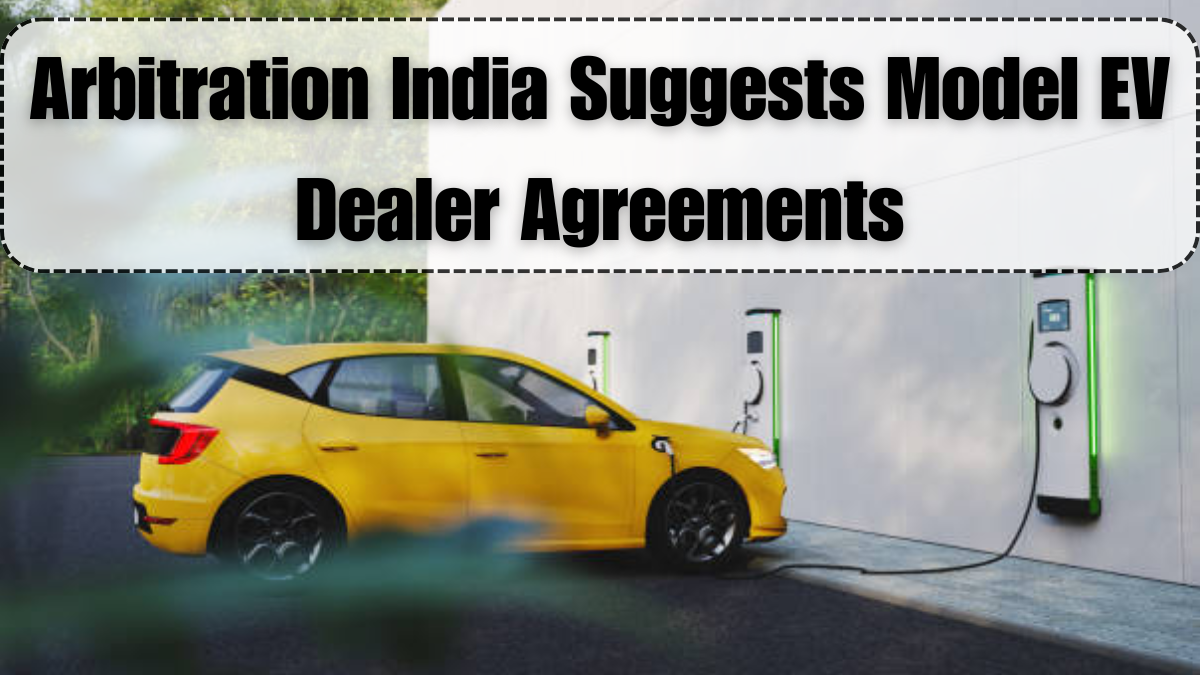EV dealership agreements are now under intense legal scrutiny as the electric vehicle market continues to expand across India. Arbitration India has stepped in with a timely recommendation—introducing standardized clauses and legal templates for EV sales contracts between manufacturers and dealerships. These model documents are designed to reduce ambiguity, protect both parties, and ensure a seamless process for the growing network of EV dealers nationwide.
With rising demand for electric two-wheelers, cars, and commercial EVs, a large number of private dealerships are signing contracts with manufacturers to secure regional sales rights. However, many of these agreements lack clarity on dispute resolution, warranty handling, pricing policies, and vehicle recall responsibilities. The absence of proper EV dealership terms often leads to misunderstandings, eventually escalating into avoidable legal conflicts. That’s where Arbitration India’s model agreements come into play.

The Legal Gaps in Current EV Dealership Contracts
Most existing dealership contracts were originally drafted for traditional automotive operations and do not address EV-specific complexities. These include challenges related to charging infrastructure setup, software updates, battery warranty conditions, and electric powertrain maintenance obligations.
Common pain points in EV dealership agreements:
-
Missing clauses on battery returns and replacements
-
Lack of clarity on software or firmware update responsibilities
-
No dispute resolution procedure for delivery failures
-
Absence of territory exclusivity terms
-
Unclear handling of EV recalls or legal liabilities
By introducing legal auto sales frameworks tailored to electric mobility, Arbitration India is helping prevent disputes before they arise.
Arbitration Clauses Make the Difference
Arbitration India recommends that every EV dealership agreement include a clear and enforceable arbitration clause. This allows both parties to resolve potential disagreements outside of court, saving time, money, and reputational risk.
Why arbitration clauses are essential in EV dealership agreements:
-
Avoid lengthy legal battles in case of disputes
-
Ensure confidentiality in commercial disagreements
-
Appoint neutral arbitrators with industry knowledge
-
Establish jurisdiction and applicable law clearly
-
Speed up the resolution process and protect cash flow
These recommendations are gaining wide support from manufacturers and legal advisors across the electric mobility ecosystem.
Moving Toward Model Contracts for Auto Sales
To streamline dealership operations and support business growth, Arbitration India has released a set of recommended legal auto sales clauses. These model agreements are open for use by manufacturers, dealerships, and fleet partners who want to establish contracts with legal certainty.
Key features of the model documents:
-
Standard terms for delivery timelines and payment terms
-
Specific sections addressing EV software, battery care, and service support
-
Clauses defining responsibilities during warranty periods
-
Clearly stated arbitration process for resolving disputes
-
Territory rights, resale terms, and marketing expectations
By introducing these uniform EV dealership agreements, Arbitration India aims to promote trust, efficiency, and legal clarity in the booming EV retail space.
FAQs
What are EV dealership agreements?
They are legal contracts between EV manufacturers and dealerships outlining responsibilities for sales, service, warranties, and territory.
Why are current dealership agreements problematic?
Most were drafted for fuel-based vehicles and don’t cover EV-specific areas like battery warranties or charging infrastructure.
What is Arbitration India’s role?
It provides model contracts and legal auto sales guidelines to ensure clarity and reduce disputes between parties.
What does an ideal EV dealership agreement include?
It should include clauses for delivery, warranty, arbitration, pricing, and responsibilities for EV-specific services.
Are arbitration clauses necessary?
Yes, they’re critical for resolving any disagreements quickly, fairly, and outside of court through an expert panel.
Click here to know more.
